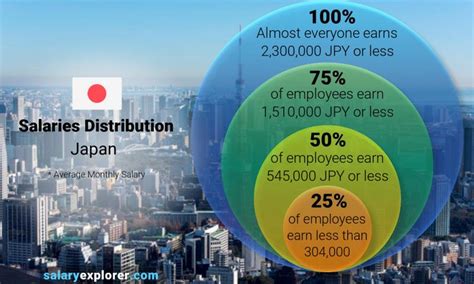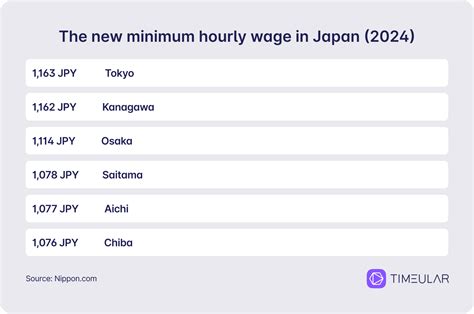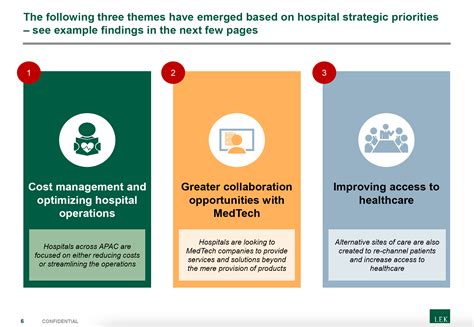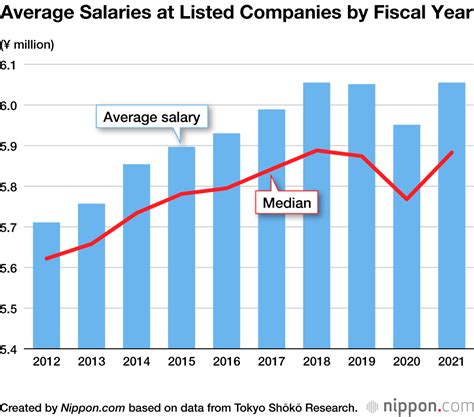Japan's economy, the fourth-largest in the world, offers a unique and dynamic landscape for professionals. Whether you're a recent graduate, an experienced specialist considering an international move, or a professional already in the country, understanding the compensation structure is crucial for career planning. But what can you realistically expect to earn?
While the national average salary provides a useful benchmark, the real story lies in the details. The average annual salary in Japan hovers around ¥4.5 to ¥5.0 million (approximately $30,000 to $33,300 USD), but this figure can vary dramatically based on your industry, experience, location, and other key factors. This guide will break down the numbers to give you a clear picture of earning potential in the Japanese job market.
What a Typical Japanese Salary Package Includes

Unlike the straightforward salary structure in many Western countries, compensation in Japan is often more nuanced. A "salary" is typically a package that includes several components:
- Base Salary (基本給 - kihonkyū): This is your fixed monthly pay.
- Bonuses (賞与 - shōyo): A significant part of total compensation. Most full-time employees at established companies receive bonuses twice a year (summer and winter). Each bonus can be equivalent to 1-3 months of your base salary, significantly impacting your annual earnings.
- Allowances (手当 - teate): Companies often provide various allowances, which can include transportation stipends (commuting costs), housing assistance, family stipends, and position-specific allowances.
- Overtime Pay (残業代 - zangyōdai): Pay for work performed beyond regular hours, which is legally mandated.
When evaluating a job offer in Japan, it's essential to look at the total annual compensation, including bonuses and allowances, not just the base monthly salary.
Average Salary in Japan: The National Benchmark

According to the most recent "Private Sector Salary Statistics Survey" by Japan's National Tax Agency (NTA), released in September 2023 (for the 2022 calendar year), the average annual salary for a full-time private-sector worker was ¥4.58 million.
This translates to approximately $30,500 USD (using an exchange rate of $1 USD = ¥150 JPY).
However, it's crucial to understand this is a national *mean* average. A salary aggregator like Payscale reports a slightly higher average base salary of ¥4.98 million based on its user-submitted data as of early 2024. The difference often comes from the sample population, with salary aggregators sometimes skewing toward white-collar, urban professionals.
The salary range is wide:
- Entry-Level Positions: Often start in the ¥2.5 million to ¥4.0 million range.
- Experienced Professionals: Can earn between ¥5.0 million and ¥8.0 million.
- Senior/Executive Level: Regularly command salaries well over ¥10 million, with top earners in specialized fields exceeding ¥15 million or more.
Key Factors That Influence Salary in Japan

Your personal earnings will be shaped by a combination of factors. Understanding these levers is key to maximizing your earning potential.
### Years of Experience
Japan's corporate culture has traditionally valued seniority, a system known as *nenkō joretsu* (年功序列), where salary and position increase with tenure. While this is becoming more flexible, especially in tech and foreign firms, experience remains a primary driver of salary growth.
According to data from Japan's Ministry of Health, Labour and Welfare (MHLW), salaries show a clear upward trend with age, typically peaking for workers in their late 50s.
- Early 20s: ¥2.5M - ¥3.5M
- 30s: ¥4.0M - ¥5.5M
- 40s: ¥5.0M - ¥7.0M
- 50s: ¥6.5M - ¥8.5M+
### Geographic Location
Where you work in Japan has a massive impact on your salary. The economic powerhouse of Tokyo commands the highest wages, followed by its surrounding prefectures and other major metropolitan areas.
Here's a comparison of average annual incomes by prefecture, according to MHLW data:
1. Tokyo: ~¥6.2 Million
2. Kanagawa: ~¥5.6 Million
3. Osaka: ~¥5.4 Million
4. Aichi (Nagoya): ~¥5.2 Million
5. Hyogo (Kobe): ~¥5.1 Million
In contrast, prefectures in more rural regions like Tohoku or Kyushu may have average salaries closer to ¥3.5 million to ¥4.5 million, though the cost of living is also significantly lower.
### Company Type
The type and size of your employer are critical factors.
- Large Corporations (大企業 - daikigyō): Companies with over 1,000 employees generally offer the highest salaries, best benefits, and most substantial bonuses.
- Small and Medium-sized Enterprises (中小企業 - chūshō kigyō): These companies form the backbone of Japan's economy but typically offer lower salaries and less comprehensive benefits than their larger counterparts.
- Foreign-Affiliated Companies (外資系 - gaishikei): These firms, particularly in finance, consulting, and tech, often pay significantly higher base salaries than domestic companies to attract top talent. They tend to be more performance-based and may offer less of the traditional lifetime employment security.
### Area of Specialization / Industry
As in any country, your industry dictates your earning potential. High-skill, high-demand sectors offer the most lucrative opportunities. Based on MHLW and NTA data, the highest-paying industries in Japan include:
- Finance & Insurance: Specialists in investment banking, asset management, and insurance consistently rank among the top earners.
- IT & Communications: Software engineers, cybersecurity experts, and data scientists are in extremely high demand, commanding competitive salaries.
- Electricity, Gas, Heat & Water Supply: These infrastructure and utility sectors are known for high, stable wages.
- Medical & Healthcare: Doctors, specialized nurses, and pharmaceutical researchers are highly compensated.
- Professional & Scientific Services: This includes fields like consulting, legal services, and specialized research.
Conversely, industries like accommodation, food services, and retail generally report salaries on the lower end of the national average.
### Level of Education
A university degree is typically the minimum requirement for a professional salaried position (*seishain*). Holding a postgraduate degree can provide a significant advantage, particularly in specialized fields. An MBA or a PhD in a technical field can be a direct path to higher-level positions and salaries, especially in R&D, finance, and consulting.
Job Outlook

The job market in Japan is defined by a unique and pressing challenge: a rapidly aging population and a shrinking workforce. While this presents economic hurdles, it creates significant opportunities for skilled professionals, including foreigners.
The job-to-applicant ratio in Japan remains high, indicating a labor shortage. As reported by government sources and organizations like the OECD, there is a strong demand for talent in several key areas:
- Information Technology (IT): A severe shortage of software developers, data analysts, and cybersecurity experts.
- Healthcare: A growing need for care workers, nurses, and medical staff to support the elderly population.
- Engineering: Mechanical, electrical, and civil engineers are needed for manufacturing and infrastructure projects.
- Tourism & Hospitality: As tourism rebounds, there is a demand for multilingual staff.
This demographic-driven demand means that qualified individuals will find a receptive and opportunity-rich job market in the coming years.
Conclusion: Key Takeaways for Your Career in Japan

For anyone considering a career in Japan, the "average salary" is just the beginning of the story. Here are the key takeaways:
1. Look Beyond the Base Salary: Your total compensation includes substantial biannual bonuses and various allowances. Always evaluate the full package.
2. Experience is Rewarded: The longer you work and build your skills, the more you can expect your salary to grow, especially within a single company.
3. Location Matters: Working in Tokyo or another major metropolitan hub will net you a significantly higher salary than in a rural area, though with a higher cost of living.
4. Target High-Growth Industries: Focus on in-demand sectors like IT, Finance, and specialized Healthcare to maximize your earning potential from the start.
5. The Outlook is Positive: Japan’s labor shortages create a favorable environment for skilled professionals. If you have the right expertise, you are in a strong negotiating position.
Ultimately, Japan offers a rewarding and stable career path for those who understand its unique professional landscape. By aligning your skills with the market's needs, you can build a successful and prosperous career in the heart of East Asia.
